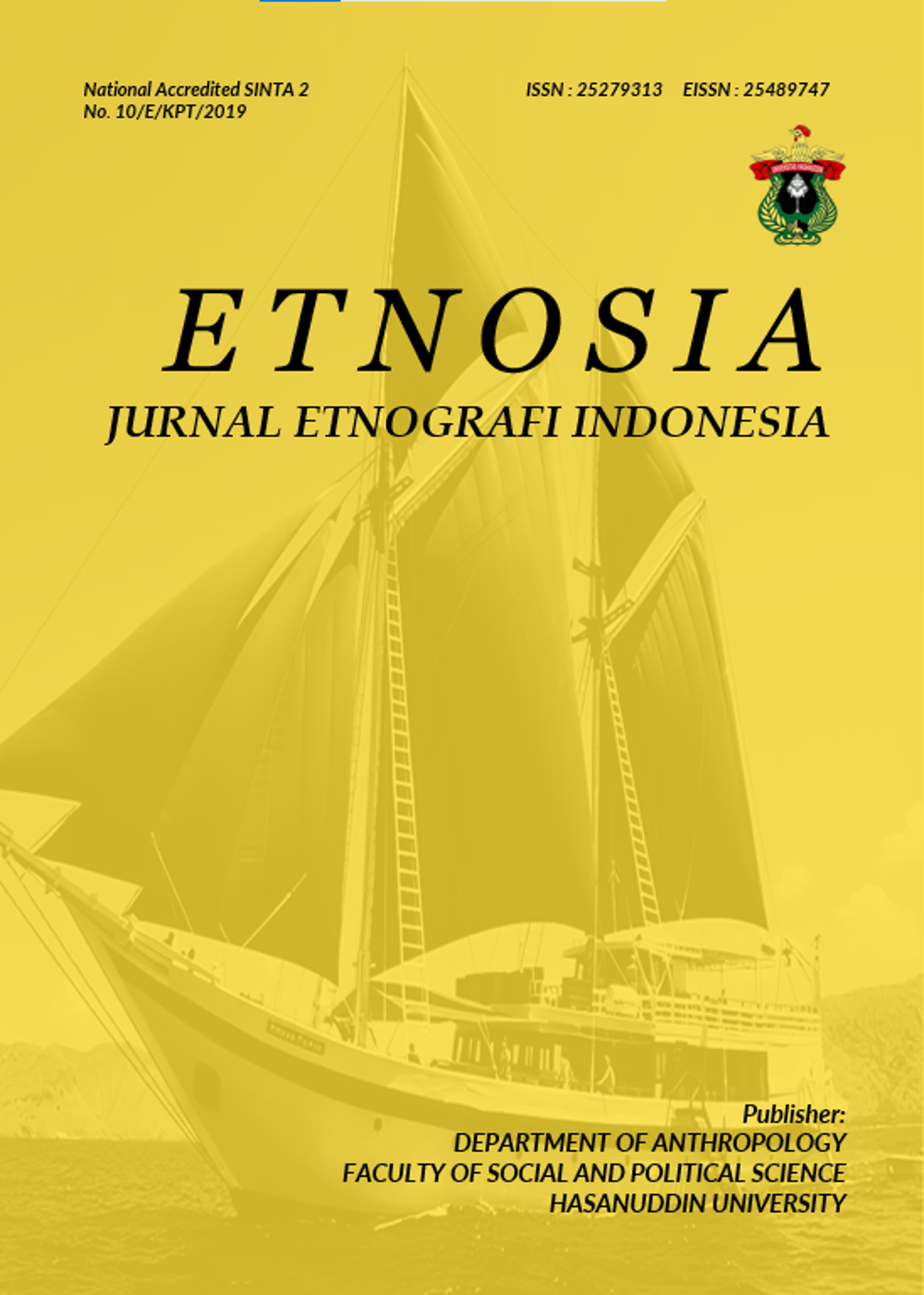Abstract
This paper aims to describe how sensitive cultural may be a pattern of words and actions that should be played according to social status. This sensitive culture is ideal for each ethnic group supporting the culture. If each does not play it according to its status, it can cause misunderstanding and even conflict. Therefore, the relationship between ethnicity, immigrants, and ethnic minorities needs to be sensitive to indigenous nationalities and dominant cultural understanding. The methodology used in obtaining the data uses a qualitative approach to data collection techniques: observation and interviews. The location of the research is Makassar City, South Sulawesi, Indonesia. The results show that the city of Makassar, which is still dominated by a single ethnic group of the Bugis-Makassar to be ideal in inter-ethnic relations, uses interaction patterns of the pattern of the dominant ethnic culture or ethnic original. Thus, it should be understood by all ethnic groups who live in the city, whether its status as indigenous or tribal settlers, so that the inter-ethnic relations be harmonious. Makassar, a multi-ethnic city, is still dominated by ethnic Bugis-Makassar. At the same time, the original ethnic and cultural patterns become ideal interaction patterns in the city. As for ethnic immigrants, for example, ethnic Toraja, Mandar, Java, Ambon, Papua New Guinea, NTT, NTB, Batak, Padang, Chinese, Arabic, Padoe, and others, must understand its status as an immigrant minority, must be adaptive and be accepted in its interaction with the ethnic dominant. Therefore, as ethnic immigrants in the exchange must follow the pattern of interaction patterns in one's ideals by the dominant ethnic group, whether it be words or actions, said eg Iye, iyo, ba, iya, tabe, kita, kau, daeng, katte. Besides that, there are also rude words, namely tai laso or tai baro, nassundala’, and suntili’. It is undoubtedly susceptible when there are ethnic immigrants who do not language and act as the dominant culture because it can be considered not adaptive or do not respect an indigenous culture as a manifestation of the ideal of the dominant ethnic groups.References
Arkanudin. (2011). Perubahan sosial peladang berpindah dayak ribun parindu sanggau, kalimantan barat. Tesis Program Pascasarjana Universitas Padjadjaran.
Basir, M. (2011). Hubungan antar Suku Bangsa di Daerah rawan Konflik (kasus Desa Dandang dan Desa Kampung Baru di Kab. Luwu Utara). Jurnal Penelitian Agama Dan Sosial Budaya “Al-Qalam,” 191 – 198.
Heldáková, L., & Kohoutová, K. (2019). Problematika etnicity a oral history – možnosti výzkumu na příkladu rusínské a ukrajinské menšiny. Človek a Spoločnosť, 22(supplement). doi:10.31577/cas.2019.00.538
Hendropuspito. (1989). Sosiologi Sistematik. Yogjakarta: Kanisius.
Juheifa. (2000). Pengaruh Interaksi Sosial Antara Transmigran Asal Jawa dengan Transmigran Lokal (APPDT) terhadap perwujudan integrasi. Program Pascasarjana Unpad.
Nustad, K. G. (2001). Etnicity as Cause and Effect. Forum for Development Studies, 28(2), 363–364. doi:10.1080/08039410.2001.9666178
Pelly, U. (1999). Kongress Antropologi Indonesia tahun XXII. Akar Kerusuhan Etnis Di Indonesia : Suatu Kajian Awal Konflik Dan Disintegrasi Nasional Di Era Reformasi. Jurusan Antropologi FISIP Univ. Indonesia.
Soekanto, S. (1990). Sosiologi Suatu Pengantar Ringkas, Edisi Baru. Jakarta: Rajawali Press.
Taneko, S. B. (1990). Struktur dan Proses Sosial, Suatu Pengantar Sosiologi Pembangunan. Jakarta: Rajawali Press.

This work is licensed under a Creative Commons Attribution-NonCommercial 4.0 International License.
Copyright (c) 2021 ETNOSIA : Jurnal Etnografi Indonesia





